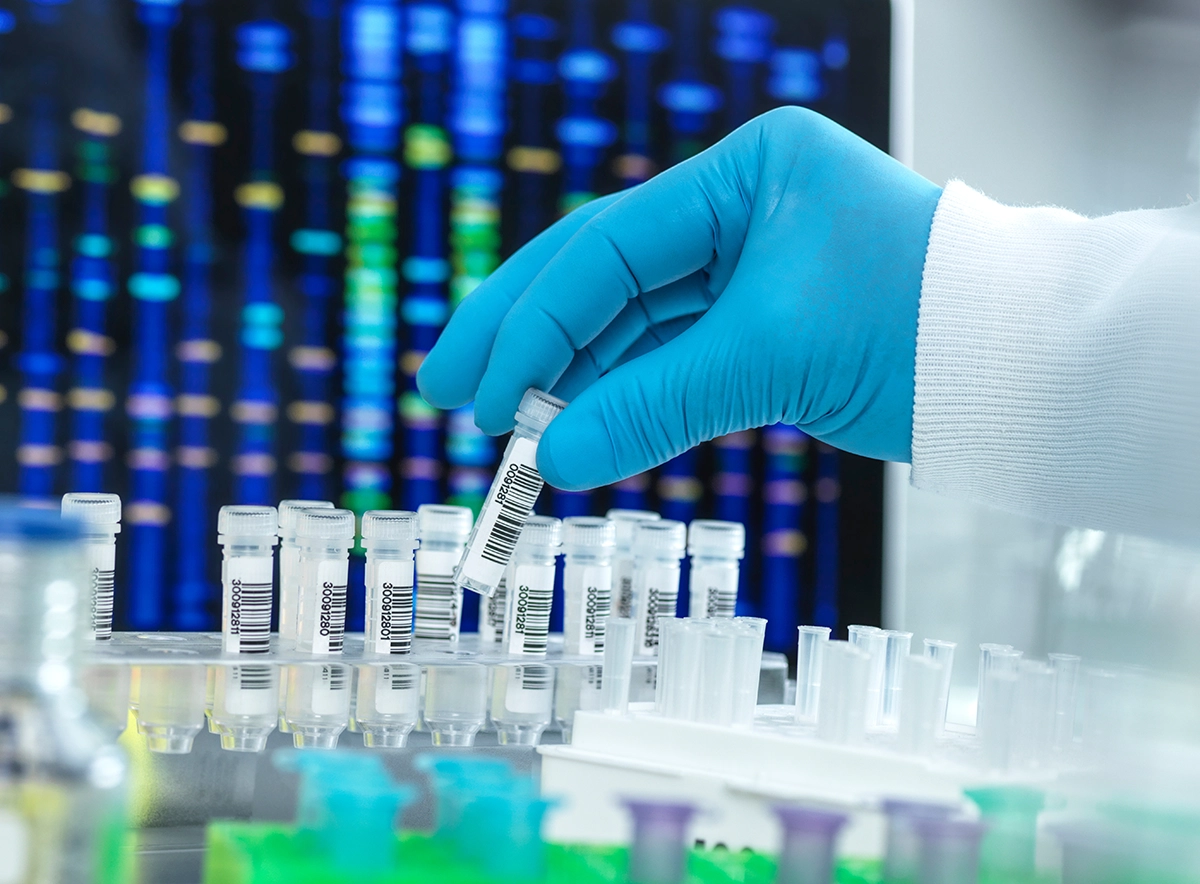Molly Doris has a Bachelor of Science in Biochemistry and over a decade of research experience. Prior to joining Oncobiomix, Molly served as a Senior Research Coordinator for the Department of Urology at the University of Texas Health Science Center at San Antonio. Molly has extensive knowledge in patient recruitment, laboratory affairs, and regulatory compliance. She is committed to promoting excellence in research, safeguarding data integrity, and maintaining the highest quality standards in healthcare research. Molly’s role at Oncobiomix is to develop and implement advanced strategies to help execute innovative research projects, while ensuring all project efforts adhere to ethical standards and legal requirements.
Oncobiomix
Harnessing the Power of the Microbiome
The importance of the microbiome
10-100 Trillion Symbiotic microbial cells, primarily bacteria, are harbored in the gut.
3.3 Million Non-redundant genes in the human gut microbiome.
>10,000 Different identified microbe species living in the human body.
99.9% Of individuals are identical to one another in terms of host genome.
80-90% Of individuals are different from one another in terms of the microbiome.
Studies demonstrate that microbiota can affect cancer susceptibility and progression such as modulating inflammation, inducing DNA damage, and producing metabolites involved in oncogenesis or tumor suppression.5
Microbiome signatures Microbiome signatures have been linked as indicators of health6
Oncobiomix aims to investigate the microbiome and its application as a “biosensor”.7
Diet and pre-biotics
Non-digestible fibers that induce a shift in the gut microbiota composition
Probiotics
Live microorganisms that confer health benefit to the host
Postbiotics
Well-defined mixtures of single molecules produced by bacteria with demonstrated benefit for the host
Bacteria Consortia
Rationally designed consortia of commensal bacteria
Fecal Microbiota Transplant
Transfer of fecal material from an individual (donor) into another individual (recipient)
Microbiome Analysis
-
1Collect sample & transfer it into provided solution
-
2Return to Oncobiomix Affiliated Laboratory
-
3Lab extracts microbial DNA
-
4AI model
-
5Report
About Oncobiomix
Oncobiomix Inc. is incorporated in Delaware and based in San Antonio, Texas. We are interested in investigating the application of microbiomes as biosensors. Our team has worked on various applications of the microbiome for over 10 years.
Our cutting-edge technology has been the culmination of ten years of intensive research, dedication, and drive.

Our Team

Michael Liss MD, PhD, MAS, MBA
CEO

James White, PhD
CTO

Charles Leach MD
CMO

Molly Doris
Research Program Manager

Dr. Michael Liss is a physician-scientist, entrepreneur, and nationally recognized leader in microbiome-based cancer innovation. With over 200 peer-reviewed publications, funding from the NIH and Department of Defense, and multiple national awards—including the NCI Cancer Clinical Investigator Team Leadership Award—Dr. Liss is a champion of collaborative, translational science. He has led multi-institutional clinical trials and holds several recent patent applications for microbiome technologies. At Oncobiomix, he drives product innovation to transform cancer detection and gut health through AI-powered microbiome diagnostics and therapeutics.

James Robert White is founder and principal analyst at Resphera. He holds a PhD in Applied Mathematics and Scientific Computation from University of Maryland — College Park.

Charles T. Leach earned his BA in Chemistry from Point Loma University in San Diego where he participated in summer research. He subsequently received his Doctor of Medicine degree at the University of Utah in Salt Lake City. During his time in Utah, he was actively engaged in research focused on identifying the elastin gene sequence. He followed this training with a residency in Pediatrics and a fellowship in pediatric infectious diseases at the University of California Los Angeles. During his fellowship, he began his studies on herpesviruses as cofactors in AIDs patients. He obtained his first faculty position at the University of Texas Health Science Center in San Antonio where he continued his studies of infectious diseases, primarily in pediatric AIDs patients, and was an active member of the Pediatric Oncology Group (POG). He and his colleagues specifically studied the contribution of herpesviruses to the development of cancer in children with AIDs, resulting in numerous high impact papers, including in JAMA and The New England Journal of Medicine. He worked at UT Health for 25 years in the Department of Pediatrics, during which time he held numerous leadership roles, including Director of Research and Chief of the Division of Infectious Diseases. During his final years in academia, he served as Division Chief for Infectious Diseases at Children’s Hospital of San Antonio (CHOSA) as well as Professor of Pediatrics in the Baylor College of Medicine. Recently, he joined Oncobiomix as Chief Medical Officer.

Contact Us
Do you have questions regarding Oncobiomix? Reach out via the form below.
References
- Siegel RL , Giaquinto AN , Jemal A . Cancer statistics, 2024. CA Cancer J Clin. 2024; 74(1): 12-49. doi:10.3322/caac.21820
- Zitvogel L, Galluzzi L, Viaud S, Vétizou M, Daillère R, Merad M, Kroemer G. Cancer and the gut microbiota: an unexpected link. Sci Transl Med. 2015 Jan 21;7(271):271ps1. doi: 10.1126/scitranslmed.3010473. PMID: 25609166; PMCID: PMC4690201.
- Liss MA, White JR, Goros M, Gelfond J, Leach R, Johnson-Pais T, Lai Z, Rourke E, Basler J, Ankerst D, Shah DP. Metabolic Biosynthesis Pathways Identified from Fecal Microbiome Associated with Prostate Cancer. Eur Urol. 2018 Nov;74(5):575-582. doi: 10.1016/j.eururo.2018.06.033. Epub 2018 Jul 12. PMID: 30007819; PMCID: PMC6716160.
- Wheeler KM, Liss MA. The Microbiome and Prostate Cancer Risk. Curr Urol Rep. 2019 Sep 7;20(10):66. doi: 10.1007/s11934-019-0922-4. PMID: 31493090.
- Bhatt AP, Redinbo MR, Bultman SJ. The role of the microbiome in cancer development and therapy. CA Cancer J Clin. 2017 Jul 8;67(4):326-344. doi: 10.3322/caac.21398. Epub 2017 May 8. PMID: 28481406; PMCID: PMC5530583.
- Wu G, Xu T, Zhao N, Lam YY, Ding X, Wei D, Fan J, Shi Y, Li X, Li M, Ji S, Wang X, Fu H, Zhang F, Shi Y, Zhang C, Peng Y, Zhao L. A core microbiome signature as an indicator of health. Cell. 2024 Oct 7:S0092-8674(24)01038-9. doi: 10.1016/j.cell.2024.09.019. Epub ahead of print. PMID: 39378879.
- Sosnowski K, Akarapipad P, Yoon J-Y. The future of microbiome analysis: Biosensor methods for big data collection and clinical diagnostics. Med Devices Sens. 2020; 3:e10085. https://doi.org/10.1002/mds3.10085